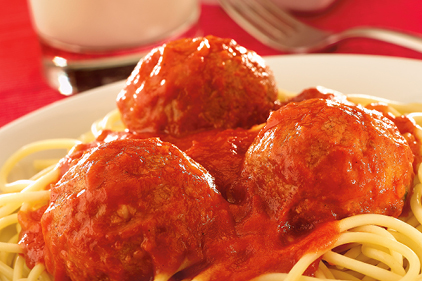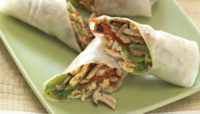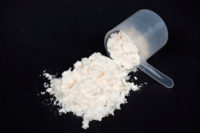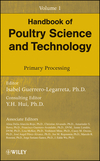But I must admit, during the past 10 years, natural product formulators have really stepped up their efforts, as each year, the new products that debut at the show get better and better. Specifically, there’s been a great deal of innovation in the area of meat-free center-of-plate proteins. Advancements include improvements in forms and textures, flavors, and above all, nutritional quality.
For example, Garden Protein International of British Columbia, Canada, added 11 new meat-free products to its line of refrigerated and frozen entrees marketed under the gardein brand. Products range from Teriyaki Chick’n Strips to BBQ Riblets.
The company uses a unique blend of soy, wheat and pea proteins to allow for an excellent source (20% or more of the Daily Value) of protein claim. These plant-based proteins, combined with organic ancient grains and a variety of vegetables, have enabled the company to produce a product that has a meaty texture and taste that many people crave. These products are designed to appeal to the growing number of Americans who want to diversify their dietary protein, in particular, reduce their meat intake.
Lightlife Foods, Turners Falls, Mass., long a leader in refrigerated vegetarian foods, has entered the frozen-foods business with the debut of two product lines: Chik’n Entrees and Veggie Burgers. Flavorful varieties include Amaz’n Asian Sesame Chik’n and Mellow Portobello Mushroom Burgers. The company is promoting its innovations by touting the fact that each serving contains 14 to 20 grams of protein, varying by product.
So how are these non-animal protein-containing products managing to contain such high levels of proteins? It’s through unique combinations of plant-based proteins that have become available in recent years thanks to efforts by innovative ingredient suppliers. And no wonder, flagging the protein content of all types of foods is a growing trend as consumers learn that protein is essential for building and repairing body tissues, and provides a feeling of fullness, which can help with weight loss and maintenance.
For a quick review, proteins can provide 22 amino acids, but only eight are essential, which means they must be consumed in sufficient quantity. Without adequate intake, the body breaks down muscle tissue to meet its protein needs. A protein that contains all eight essential amino acids is considered a complete protein. All animal proteins are complete, but not all plant-based proteins, which is what makes these vegetarian innovations so unique.
To understand how proteins vary in quality, a protein digestibility-corrected amino acid score (PDCAAS) is often used. This is an internationally used measure that rates a protein’s ability to supply essential amino acids that is corrected for its digestibility, or the amount of protein that is absorbed, and the protein’s ability to supply the FAO/WHO amino acid requirements for 2 to 5 year olds. The highest PDCAAS score is 1.0, which reflects a perfectly complete protein.
Meatless products have long relied on soy protein concentrate, soy protein isolate ingredients and textured vegetable protein, which vary in PDCAAS, but are typically in the range of 0.90 to 0.99, as a source of protein. Flavor, texture and functionality typically limit use levels. What formulators have found is that when combined with other plant-based proteins, it is possible to significantly boost protein contents.
Other quality protein sources include select grains such as buckwheat and quinoa, as well as legumes, in particular black beans, garbanzo beans and lentils. Some plant seeds, in particular flax and hemp, are complete proteins that provide additional nutritional benefits, including fiber, vitamins and minerals.
Pea protein is a newer ingredient valued for its emulsifying properties as well as its PDCAAS value of 0.93. Pea protein isolate is extracted from field peas, the only non-oilseed source of quality protein that also is high in fiber, vitamins and minerals.
An emerging plant-based protein source is canola, also known as rapeseed. Ingredient suppliers are able to produce canola protein isolate that has a PDCAAS score of 1.00. But it’s not just the protein quality that makes canola attractive to meat substitute formulators, it is canola’s functional properties, which include emulsification, gel formation, thickening, and water- and ingredient-binding.
Meat substitute marketers targeting the common consumer who is simply trying to reduce consumption of animal meats, but not necessarily animal-derived foods such as dairy and eggs, will often include these ingredients to help boost protein contents.
For example, The Food Collective, Irvine, Calif., markets a line of meatless burritos that contain real cheese. Quorn Foods Inc., Westport, Conn., includes egg white in its proprietary Quorn recipe. This company is extending its brand to a line of frozen meatless entrées and burritos that contain 10 to 20 grams of protein per serving, depending on variety.








